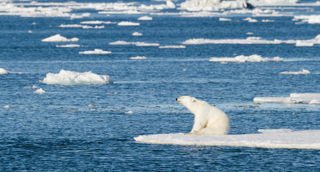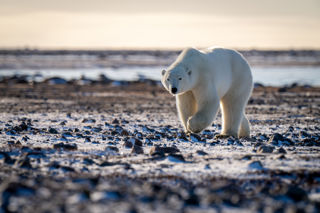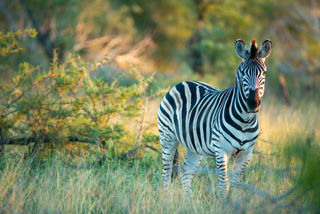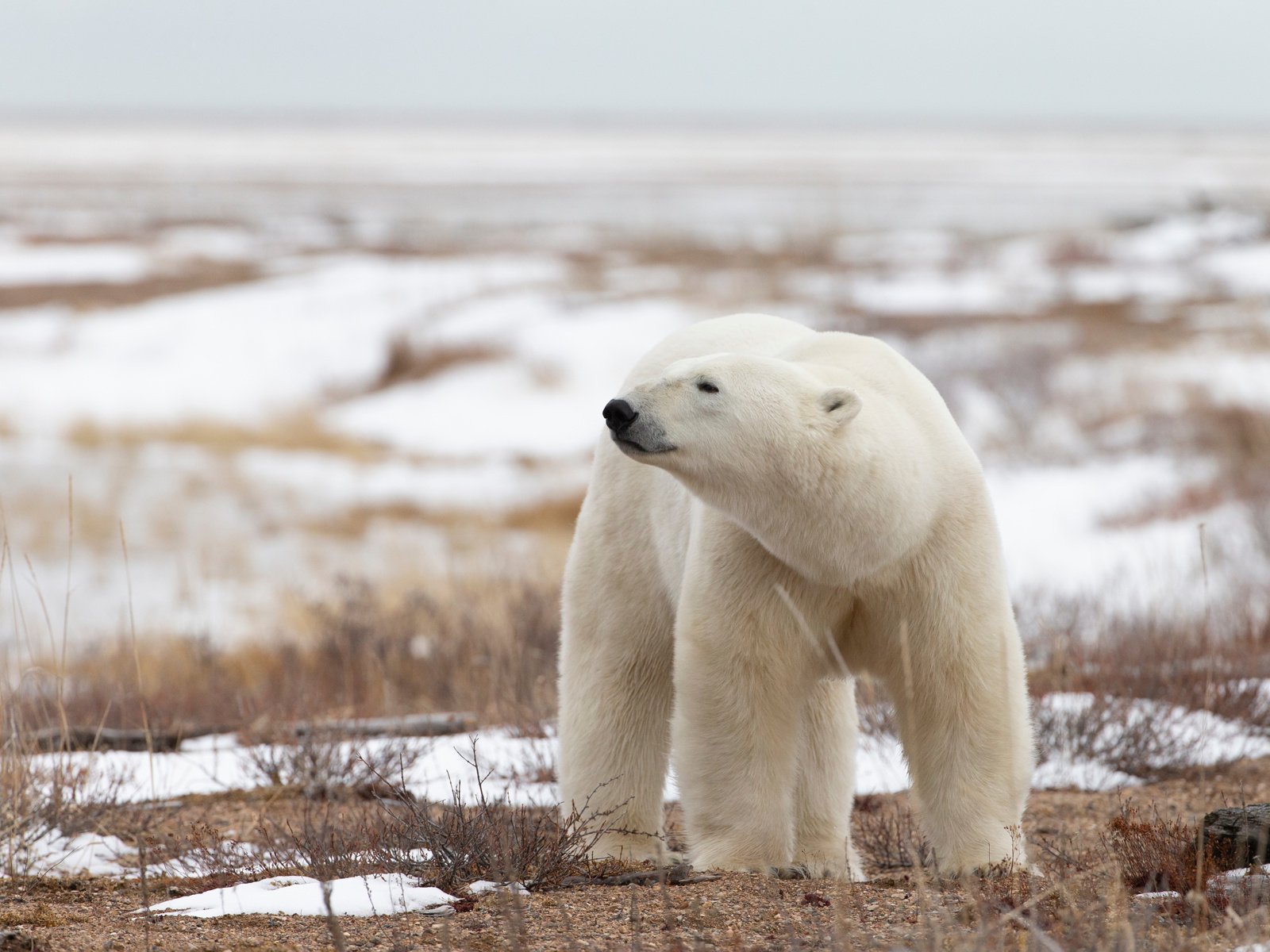

Polar Bear
The ‘canary in the coal mine’ of climate change

Whilst polar bears might look cute and cuddly on your Christmas card, they are actually pretty tough. I mean, you’d have to be to live in the Arctic, it’s freezing! Polar bears are designed to survive in the harshest of environments and they keep warm thanks to two layers of thick fur and nearly 10cm of blubber under the skin. They are the largest carnivores that live on land and they can weigh up to a humongous 680kg.
Even though polar bears can thrive in some of the toughest conditions on the planet, it is not the cold Arctic weather that’s causing them a problem. In fact, it is really quite the opposite! Climate change is making the planet warmer, which means the icy habitat that polar bears know and love has started to disappear. This is why our partners, Polar Bears International, are campaigning and fundraising to help protect polar bears, before it’s too late.
Their future is in our hands: all of us, individuals, communities, businesses and governments must work to significantly reduce greenhouse gasses. It is by doing this that polar bears, and their Arctic home, will be saved.
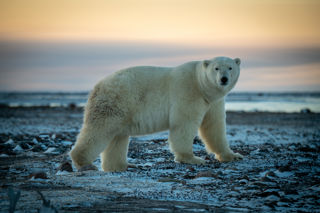
Working with Polar Bears
WildLife Foundation works with its partners Polar Bears International to protect polar bears. Yorkshire Wildlife Park are proud to be Polar Bears International only Arctic Ambassador Centre in the UK. We contribute to their Climate Alliance Program, helping to direct policy, build partnerships, and engage in public outreach. We also take part in research programs that would be impossible to conduct with polar bears in the wild.
Conservation, welfare and education:
Project Polar is the WildLife Foundation’s flagship initiative. Working in association with Yorkshire Wildlife Park and Polar Bears International, it is part of an international centre for conservation, rehabilitation and research to improve the welfare of polar bears in captivity and in the wild. Project Polar helps to educate people about the serious threats that polar bears are facing and contributes to education programmes in Canada, Greenland, Russia and Norway.
Conservation for species impacted by climate change:
WildLife Foundation has been a key player in working with the International Union for Conservation of Nature [IUCN] to produce its `Guidelines for Assessing Species Vulnerability to Climate Change’, a landmark report warning of the impact of shifting weather patterns on wildlife and global biodiversity. These standards will help conservation campaigners and projects in the battle to ensure species are not lost through climate change.
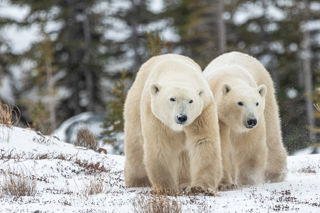
Research into denning behaviour:
Denning is the process by which pregnant mothers dig a large hole to create a den in which she gives birth and then comes out after three months. During this time, the mother survives using reserved fat in the body. WildLife Foundation supports a vital research project, undertaken by its partners, Polar Bears International in Svalbard, looking into the effects of climate change on polar bears’ denning behaviour, and the extent to which the loss of sea ice is affecting mothers and cubs.
Funding for education programmes
Education and learning programmes are really important tools in helping people to understand challenges and change their attitudes and behaviours. WildLife Foundation funds a Polar Bears International education programme, which aims to educate communities – especially school children living in the range states of wild polar bears in Canada, Greenland and Russia – in the importance of looking after these amazing animals.
Threats
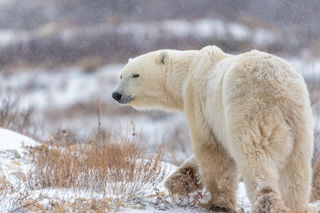
Facts
- It’s not just two thick layers or fur and 10cm of blubber that helps to keep polar bears warm. They also have a small tail and tiny ears to prevent heat loss. This keeps them nice and toasty!
- Despite their substantial weight polar bears are incredibly quick, reaching speeds of up to 40 kmph (25 mph) on land and 10 kmph (6mph) in the water.
Seven Worlds, One Planet
Our work with Amur leopards has taken place in Russia, and at home at Yorkshire Wildlife Park.
Donate Today
We can’t do what we do without you. Donate to WildLife Foundation today!
Your donations – however big or small – make a HUGE difference to animals around the world that really need our help.
Text / SMS donations:
To donate £1, text POLBEAR5 to 70201
To donate £3, text POLBEAR5 to 70331
To donate £5, text POLBEAR5 to 70970
To donate £10, text POLBEAR5 to 70191
Keep up to date with WildLife Foundation
Sign up to keep up to date with us. Find out how you can help through fundraising, events, and more. You can unsubscribe at any time.


Stay up to date with WildLife Foundation
WildLife Foundation: charity number 1152642

